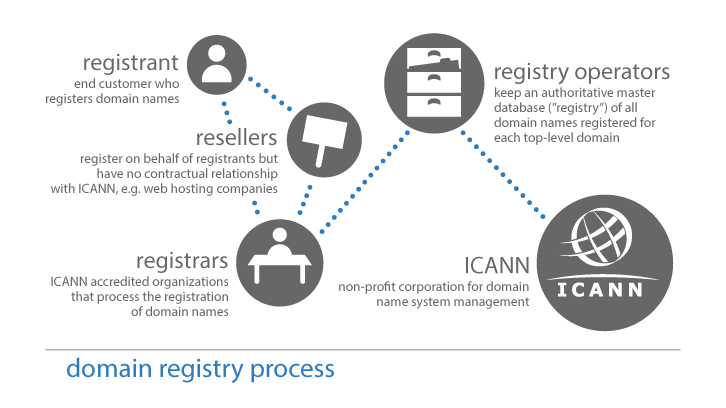The content below is taken from the original ( Sky is New Limit for Dot Com Domain Prices), to continue reading please visit the site. Remember to respect the Author & Copyright.
Earlier this week, domain name registrar Namecheap sent out an email to all customers advising them of a secret deal that went down between ICANN and Verisign sometime late last year. It has the potential to change the prices of domain names drastically over time, and thus change the makeup of the Internet as we know it.
Domain names aren’t really owned, they’re rented with an option to renew, and the annual rate that you pay depends both on your provider’s markup, but also on a wholesale rate that’s the same for all names in that particular domain. This base price is set by ICANN, a non-profit.
Officially, this deal is a proposed Amendment 3 to the contract in place between Verisign and ICANN that governs the “.com” domain. The proposed amendment would let Verisign increase the wholesale rental price of “.com” domain names by 7% per year for the next four years. Then there will be a two-year breather, followed by another four years of 7% annual hikes. And there is no foreseeable end to this cycle. We think it seems reasonable to assume that the domain name registrars might pass the price gouging on to the consumer, but that really remains to be seen.
The annual wholesale domain name price has been sitting at $7.85 since 2012, and as of this writing, Namecheap is charging $8.88 for a standard “.com” address. If our math is correct, ten years from now, a “.com” domain will cost around $13.50 wholesale and $17.50 retail. This almost-doubling in price will affect both small sites and companies that hold many domain names. And the increase will only get more dramatic with time.
So let’s take a quick look at the business of domain names.

They CANN and They Will
The Internet Corporation for Assigned Names and Numbers (ICANN) formed in 1998 with the intent to coordinate, allocate, and assign domain names and IP addresses, assign protocols, and more. ICANN is also responsible for the thirteen root name servers that make up the Internet, and they’re the reason you type words instead of numbers when you want to visit a website. They officially operate as a not-for-profit, public-benefit corporation.
Verisign was founded in 1995 and got their start issuing SSL certificates. They became an internet superpower when they acquired Network Solutions in 2000 and took over the company’s registry functions. As part of this new deal, Verisign will be able to operate as a domain name registrar, stopping just short of being able to sell “.com” real estate themselves, although they could potentially act as a reseller through another company.
As part of the proposed amendment, Verisign will give ICANN $20 million over the next five years, beginning January 2021. Although it isn’t exactly clear how they’ll spend the money, it’s supposed to be earmarked for continued support of things ICANN were already doing, like mitigating threats to DNS security, governing the root name server system, and policing possible name collisions. But people have questioned ICANN’s transparency and accountability — so far, there doesn’t seem to be a system in place to verify that the funds aren’t misappropriated.

What’s a Web Address Worth?
If domains are too cost-prohibitive, then only the rich can stake a claim in cyberspace, and democracy dies in that regard. Conversely, if land is too cheap, cyber-squatters will snatch up URLs and/or dilute the web with snakeoil sites. Any right answer will need to balance these offsetting effects.
Inflation drives the prices of all other goods up, why not domain names? But is the rate too high? The average inflation rate in the US runs under 3% per year, and hasn’t seen 7% in ages.
What do you think, Hackaday universe? Is this increase schedule cause for alarm, or is it just business as usual?
We think ICANN could have at least notified registrars sooner, but that may have given consumers too much time to complain. This isn’t the first time that ICANN has ignored public comment in recent memory — last summer when there was talk of removing price caps on “.org” domains, many people commented in favor of keeping prices capped on the other legacy TLDs, and ICANN completely ignored them. A few months later, the .org registry was purchased by a private equity firm, and the details are still being worked out. Is ICANN still working for the public good?
In the tradition of begging forgiveness later, and for all the good it’ll do, ICANN has an open comment period until Friday, February 14th. So go tell ’em how you feel, even if it feels like screaming into the void.




